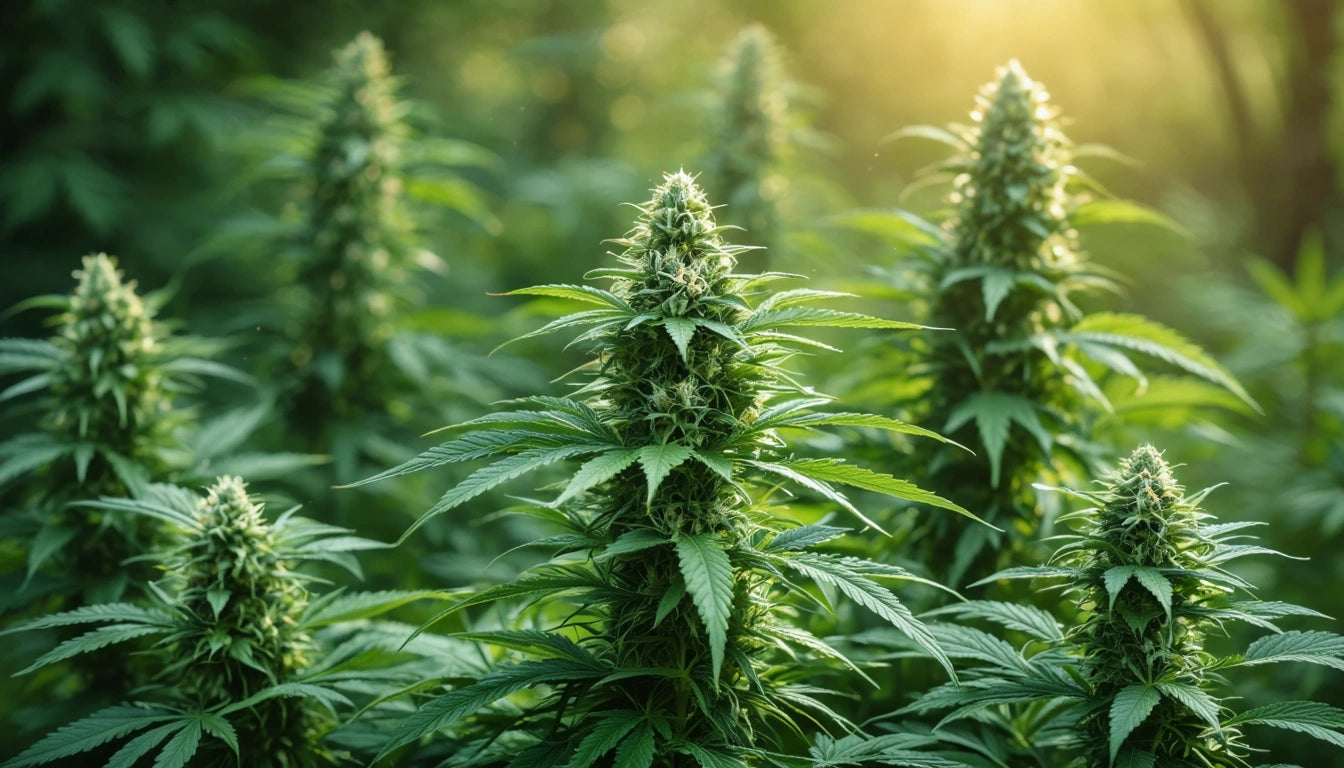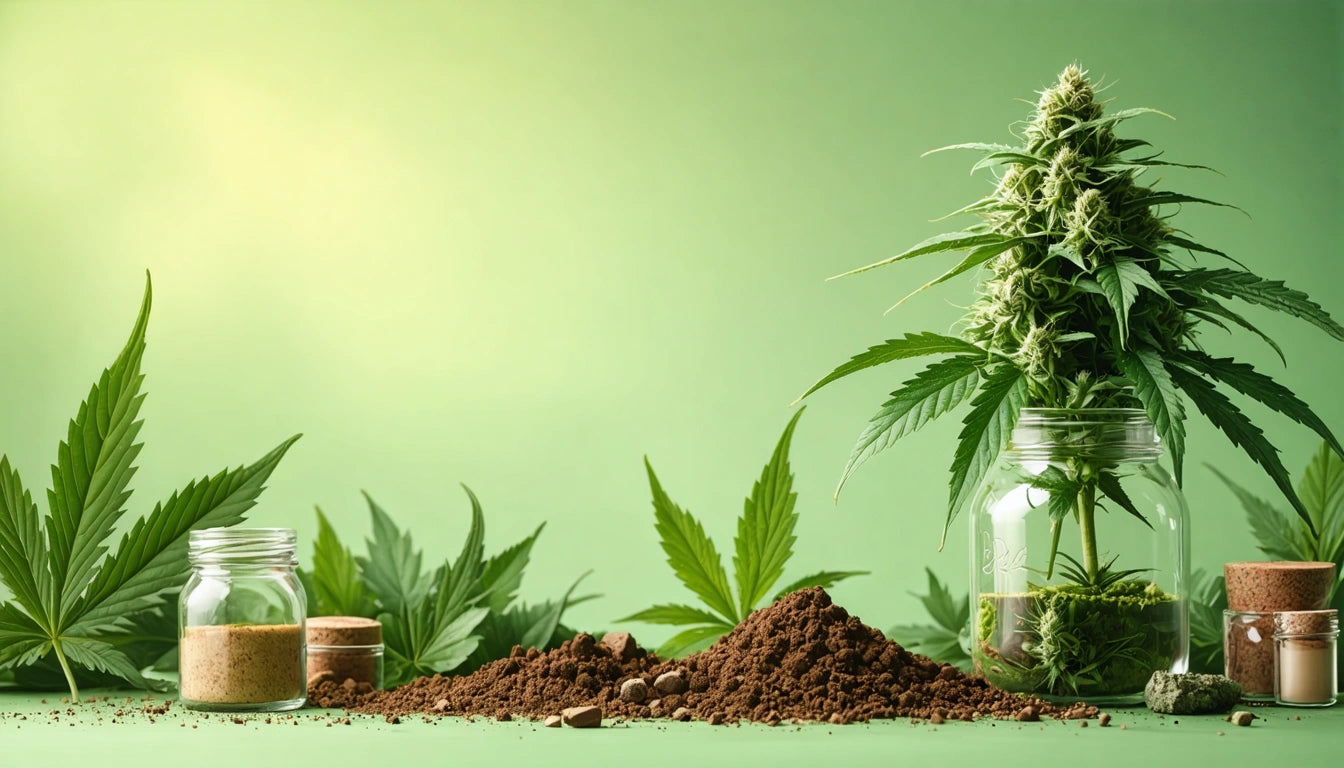Table of Contents
How to Recognize and Handle Smoking Too Much Weed
Cannabis consumption has become increasingly common as legalization spreads, but many users still struggle with the question: how much weed is too much? Understanding your limits and recognizing when you've crossed them is essential for a positive experience. This guide explores the signs of overconsumption, what happens in your body when you smoke too much, and practical steps to take if you find yourself overwhelmed.
Signs You've Smoked Too Much Weed
Recognizing when you've consumed too much cannabis is the first step in addressing the situation. What happens when you smoke too much weed varies from person to person, but certain indicators are common.
Common Indicators of Overconsumption
- Intense anxiety or paranoia
- Racing heartbeat
- Dizziness or vertigo
- Nausea or vomiting
- Confusion or disorientation
- Extreme dry mouth
- Impaired coordination
These symptoms collectively represent what is commonly referred to as "greening out" or experiencing a "whitey" - terms used to describe what is it called when you smoke too much weed. While these experiences can be uncomfortable, they are typically temporary.
Physical Symptoms of Overconsumption
What happens if you smoke too much weed often manifests physically. Your body may respond with several noticeable symptoms that signal you've exceeded your tolerance level.
The cardiovascular system typically responds with increased heart rate, sometimes reaching 20-50 beats per minute above normal. This can feel alarming but rarely poses serious risks for healthy individuals. Blood pressure may initially increase then decrease, potentially causing dizziness.
Gastrointestinal distress is also common, with nausea being particularly prevalent. Some users experience what's known as "cannabinoid hyperemesis syndrome" with repeated high-dose use, characterized by cycles of severe nausea and vomiting.
Mental and Psychological Effects
The psychological impact of overconsumption can often be more distressing than the physical symptoms. What happens if you smoke too much weed at once frequently includes intense anxiety or panic attacks, which can be frightening even for experienced users.
Paranoid thoughts may emerge, causing unfounded worries about health, safety, or how others perceive you. Time distortion becomes pronounced, with minutes feeling like hours. Some users report depersonalization or derealization - feeling disconnected from themselves or reality.
Cognitive function becomes impaired, with short-term memory issues and difficulty maintaining a coherent train of thought. In rare cases, some users may experience temporary psychosis-like symptoms, including hallucinations or delusions, particularly those with underlying mental health vulnerabilities.
What to Do If You've Smoked Too Much
If you're wondering what to do if you smoked too much weed, there are several effective strategies to help manage the experience and reduce discomfort.
Immediate Steps to Take
- Find a calm environment: Move to a quiet, comfortable space with minimal stimulation.
- Stay hydrated: Drink water to combat dry mouth and help your body process the THC.
- Try black pepper: Chewing black peppercorns can help reduce anxiety due to the terpene beta-caryophyllene.
- Focus on breathing: Deep, measured breaths can calm your nervous system and reduce panic.
- Use CBD if available: CBD can counteract some of THC's more intense effects.
Remember that cannabis overconsumption, while uncomfortable, is temporary. The most intense effects typically subside within a few hours, though residual effects may linger for up to 24 hours depending on consumption method and amount.
Prevention Strategies for Responsible Consumption
The best way to handle smoking too much weed is to prevent it from happening in the first place. Responsible consumption starts with understanding your personal limits.
Start with low doses and gradually increase as needed, particularly with unfamiliar strains or consumption methods. Using accurate digital scales to measure your cannabis can help ensure consistent dosing and prevent accidental overconsumption.
Pay attention to THC percentages, which can vary dramatically between products. Modern cannabis strains often contain significantly higher THC levels than those from previous decades, making it easier to consume too much inadvertently.
Consider tracking your consumption in a journal, noting effects at different doses to better understand your personal tolerance. This approach is particularly helpful when determining how much weed is too much per week for your individual body chemistry and lifestyle.
Long-Term Considerations for Regular Users
For regular cannabis consumers, understanding the cumulative effects becomes important. While occasional overconsumption is generally not dangerous, patterns of heavy use warrant attention.
Tolerance develops with regular use, potentially leading to increased consumption over time. This can result in diminished effects from the same dose, prompting some users to consume more to achieve desired results. Taking periodic breaks can help reset tolerance and reduce the risk of dependence.
If you find yourself frequently wondering if you can smoke too much weed, it may be worth examining your relationship with cannabis. Signs that consumption may be problematic include using more than intended, unsuccessful attempts to cut down, or continued use despite negative consequences.
For those concerned about their consumption levels, speaking with a healthcare provider who is knowledgeable about cannabis can provide personalized guidance. Many regions with legal cannabis also offer harm reduction resources specifically designed for cannabis consumers.
Remember that while cannabis has a high safety profile compared to many substances, mindful consumption promotes the most positive experience. By respecting your limits and responding appropriately when those limits are exceeded, you can enjoy cannabis while minimizing potential negative effects.











Leave a comment
All comments are moderated before being published.
This site is protected by hCaptcha and the hCaptcha Privacy Policy and Terms of Service apply.